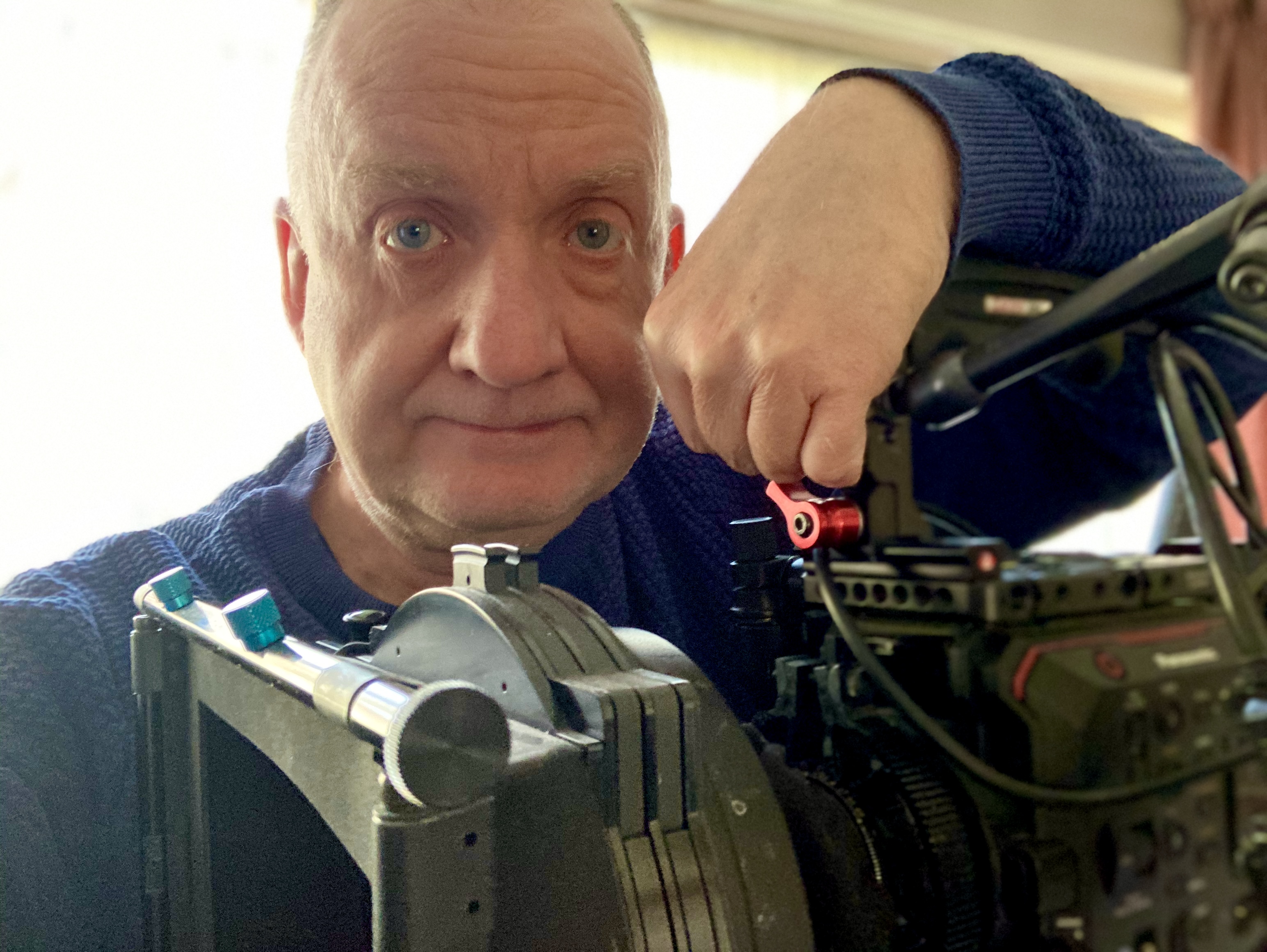ASK & DISCUSS
INDEXCopyright Advice for a short film...Help!
7 years, 7 months ago - Miro Caminade
Hi
We are in pre-production for a short little British comedy drama.
I'm getting conflicting advice regarding copyright and we can't afford a lawyer...starting to freak out!
Our protagonist in the story lives in a tipi community in Wales, 1991. When he finds out Terminator 2 is premiering in TV he decides he wants to get one, behind his parents back.
My questions:
-can we use a poster of Arnie in the child's tipi (not using the Terminator 2 branding, just his face)
-when he flicks through a TV guide, can we show a list of shows names and then 'Premier: Terminator 2' (no images)
-can the characters talk about the film
Any advice would be really helpful. I've searched the web and there seemed to be people saying there is fair use/popular culture and one blog referenced the movie Clerks, where they discuss movies a lot and have posters in the background.
However, I spoke to Raindance film festival and they said we can't use the poster of Arnie.
Thank you
Only members can post or respond to topics. LOGIN
Not a member of SP? JOIN or FIND OUT MORE
7 years, 7 months ago - Yen Rickeard
I am not a lawyer, but as I understand it, if the poster is incidental, i e not part of the plot line, you could use it, it's just background. Yours is an important part, so, no, not without permission. However, if, as it seems, the reference is positive, it is like an advertisement for the film/actor. So now you have a choice. Legal, go through all the hassle of finding who where what to write to for the permission, or go guerilla and just do it on the basis that usually the audience for a short is limited, and who what where will never find out. The first is professional, and finding your way through the hassle a learning experience, the second gets the film made in the foreseeable future. Your defence being thaat no harm was done and it was like a promotion.
7 years, 7 months ago - Miro Caminade
Thanks Yen.
I think we have decided to get rid of the poster and have the character doing drawings of a bodybuilder with a gun to show his obsession with Arnie.
It seems to much of a hassle risking using any images.
Thanks
7 years, 7 months ago - Jackie Sheppard
It all comes down to the word 'featured'. In this instance, your poster would be featured as it is a key part of the plot. Therefore you need permission to use it. You can talk about the film; you can show the TV Guide (assuming you're making that up and it's not an actual existing TV guide). Be wary of the internet and discussions about 'fair usage'. That's an American piece of copyright law, not UK law. Yes, the film 'Clerks' may have used references; see also Ready Player One - a film full of cultural references, posters, tv clips etc etc from other TV programmes/films but you can be sure there will have been a whole team of people dedicated to getting the clearances on all that material. If your film were to do well and get wider exposure, you'd need all the paperwork showing that you have permission for anything that might require a clearance. Think you are wise to skip the images of Arnie unless you know someone who can help you get clearance.
7 years, 7 months ago - Paddy Robinson-Griffin
Yen rather nails it, here, in practical terms.
If it was a feature film, the answer would be a straight no - even those incidental posters get legally checked if they're prominent in any way, and anything featured opens up a whole can of worms. Arnie's image isn't owned by him. The poster is a derivative work of the photograph, and after that the poster designer, plus any studio IP along the way. Simply not worth the effort to clear!
The way to look at this is that too get into trouble there are two steps - using somebody else's IP, and getting caught using it. If to do the former but not the latter then you've got away with it, and that's a common experience in folklore. If you get caught/challenged then the exact legal position is somewhat moot - the cost of defending a challenge is higher than it's worth.
Sadly, getting caught is easy. If your film is good enough to attract views, sooner or later your will come unstuck. A common theme is entering a festival with unlicensed music - you'll lose your entry fee as they can't screen it. Whilst individuals may be too small to bother with, festivals are an easier target, and so may be more jumpy and simply not risk it. And imagining you're too small to bother with is a mistake, Getty are relentless for instance, it's their while business.
Best swerve the whole issue by only using your own IP :)
7 years, 7 months ago - Glyn Carter
Paddy's point is worth reiterating, especially as it's an angle that Yen missed.
Yes, as a small short, you might just get away with guerrilla usage of rights, in that no-one will notice, or if they do, won't bother to pursue you (depending on how protective they are of their IP, like Disney). BUT it's very likely that you won't get into festivals, because they are actually more liable, as they screened your film.
It looks like you're finding a creativ way round it. Very wise. And there's a silver lining: I bet you'll find something that works better dramatically anyway - that's what happens!
7 years, 7 months ago - Mark Wiggins
I worked on a job once where we were shooting in a real pub and all the labels in front of the pumps had been covered in blue tape so you could not see which beers belonged to which pump. When I saw the finished scene in the film, the blue tape had been replaced by the beer logos again indicating which beer belonged to with pump. It was so well done that you couldn't see they were digital replacements. The world of product placement!
7 years, 7 months ago - John Lubran
The difference between factual and fiction is important here.Lawyers, distribution and producers understandably get very twitchy about rights compliance. Having confidence in ones own legal position is worthless if those one rely upon don't share your confidence.
Feature films are often full of things that are owned by folk who've not been asked for permissions, whole streets and cities of buildings, motor vehicles, manufactured products and entities that are arguably art forms and IP. The essential legalities are to do with what constitutes exploitation, misrepresentation and/or defamation etc. So within a fiction film it's much easier to fall foul of one or more such things. But including them without an agrees not automatically illegal. It's avoiding the hassle of challenge that the better part of valour.
The whole is quite different with factual films. Pretty much anything that's incidental with recording is valid if it occurs in a public place or also very often a private place where the public have clear access. However even with factual one ought to avoid anything that might be deemed unreasonably exploititive, defaming or misrepresentative. It does annoy me when I see so much blurred out on factual for fear of lawyers when I know that thing being blurred is absolutely valid in context.
7 years, 7 months ago - Miro Caminade
Thanks again everyone, more good solid advice. You've all been really helpful.
7 years, 7 months ago - George Brian Glennon
Miro, If you think this film may go anywhere then do not use it, or be prepared for business and legal to get it cleared.
If someone is preparing a narrative fiction short film for the major festival circuit then everything has to be cleared.
I'm fortunate to have one of the top film/entertainment industry lawyers in London, however you may be able to find a "Lawyer for the Arts" through organizations that sponsor them to speak to for 15-30 minutes for no charge.
7 years, 7 months ago - John Lubran
I've used "top entertainment lawyers' in London too. Whilst that level of legal advice is always useful I've also learned not to entirely place my soul into their keeping. The entrenchment of procedural and statutory legislation does not go as deep as our Common Law does. Much to the surprise and dismay of a number of 'top lawyers' who have worked for and against us. It's not rocket science but it does require an essential familiarity, and indeed empathy, with the fundimental 'spirit of our law', so often technically and erroniously engineered out of Admiralty (Administrative ) law.
For most however, playing safe is the only choice but at least know that other arguments are often available.
7 years, 6 months ago - Dave Hall
I'm sure others have suggested this, but do you have a Rainier Wolfcastle-esque plan B? i.e. Create a fictional action hero and movie that's an obvious equivalent of Arnie/Terminator but is different enough to avoid any infringements? I think that would be safer. It would be a real shame if you got some permission to use it, but found (as you've mentioned) that you couldn't show your film at certain festivals, or distribute it on certain platforms because of copyright infringement. Imagine the BBC or Netflix saying, "we'd love to buy this but we can't because of the Arnie stuff". You'd be gutted.
7 years, 6 months ago - Andrew N. Hill
I am not a lawyer. My understanding is that you could show a poster in the background if it is not significant e.g. if someone was just walking past it or standing in front of it but if it is referred to and takes on a significance beyond being mere background then you will need copyright permission. Don't take what I've said as definitive but it is probably safer to assume that you need copyright permission.










